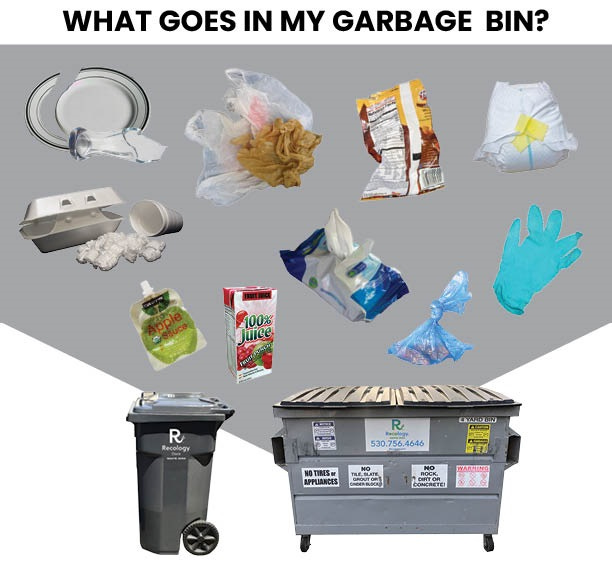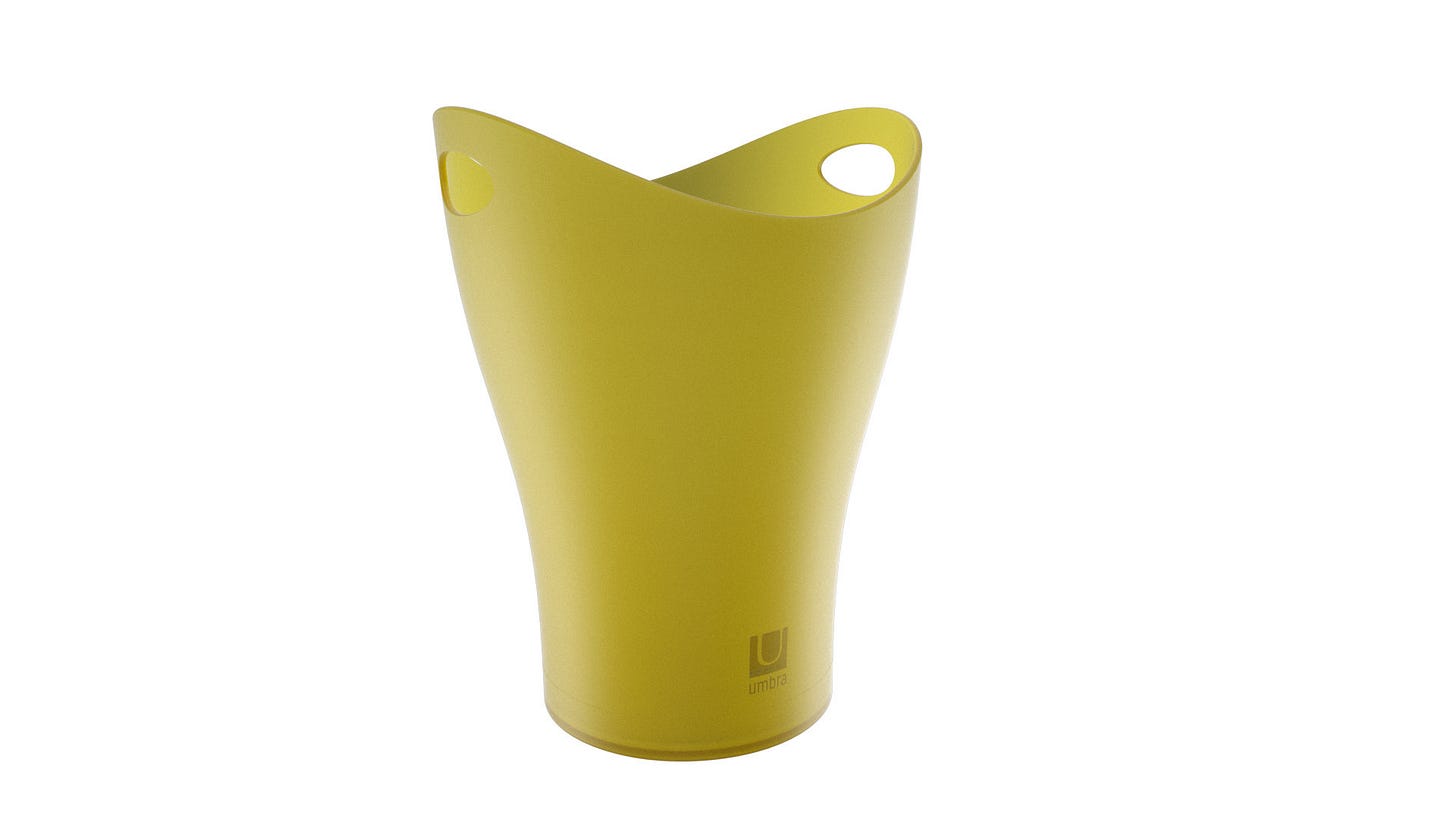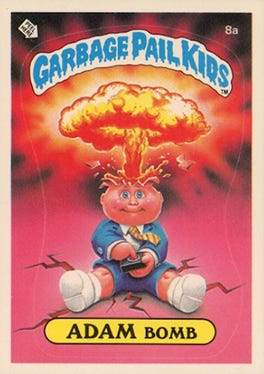The phonebank volunteer across the table from me ended her call, looked up, and repeated what she’d just heard from the Nevada voter she’d been talking to: “I’m a garbage person and I’m voting for Trump.”
This was not the response she’d hoped for; we were, after all, sitting in the Oakland campaign offices of Trump’s opponent, Vice President Kamala Harris. But no one at our table found the Nevada man’s boast — because that’s what it was — odd or confusing.
We knew about “garbagegate”1: pro-Trump comic Tony Hinchcliffe’s nasty “joke” at Trump’s October 28 Madison Square Garden rally about Puerto Rico being “a floating island of garbage” and President Biden’s parry, the following day, that “the only garbage I see floating out there is his supporters — his, his demonization of Latinos is unconscionable, and it’s un-American.” No, not supporters, the White House press office insisted: supporter’s, a possessive made implicit by the pronoun that followed.
No matter. Trump seized the opportunity to play garbage collector, complete with safety vest and a valiant attempt to open the door of a garbage truck. And Trump’s fans, like their leader always eager to see themselves as victims, wrapped themselves in “garbage” as merrily as they’d appropriated “deplorables” during the 2016 presidential campaign.
Literally wrapped, in some cases: Donald Trump Jr. wore a garbage-bag costume for Halloween and crowed about it on Xitter. So did Fox News personality Megyn Kelly (“Happy Halloween Garbage People!”).
They’re garbed in garbage, I thought. And then, because I really didn’t want to waste any more time thinking about Don Jr. or Megyn or their followers, I stared at those words, garbed and garbage. Were they connected? And if not, why not?

I’ll cut to the chase: There is zero evidence that garb — from French garbe (“gracefulness”) or Italian garbo (“elegance, pleasing manners”) — is related to garbage (“waste material, litter, refuse”), whose origin is, sigh, “uncertain and disputed,” according to the OED, and which is more than a century older than garb (1422 for the current meaning of “garbage” versus 1549 for “garb”).

This is odd, because most English words that end in -age have a direct connection to their root words. A hermitage is a dwelling for hermits; usage is the act of using; mileage is a measure of miles traveled; luggage is lugged. And so on. It’s been like that ever since English adopted the -age suffix from French, around 1300.2
But garbage is different.

The noun garbage first appeared in print in 1422; it originally meant “entrails of an animal” or “offal.” (Two centuries later, during the reign of Edward II, there was an officer of the royal kitchen called the “sergeant garbager,” responsible for gutting animal carcasses. The title, and the job, seem to have disappeared thereafter.) By 1549 garbage meant “trash” or “any waste material,” which is what it still means in American English; the OED says that meaning is “rare” in British, Irish, and New Zealand English. A metaphorical sense — “nonsense,” “something worthless” — was in circulation by the late 1500s. And the adjective garbage may have appeared in England as early as 1817 (the citation is ambiguous) and definitely appeared in the New York Sun in 1896: “The garbage talk of Mr. Tillman should not make the country forgetful of the jets of honeyed and perfumed speech spurted by the Hon. William F. Vilas.”
Could garbage be related to garble (to jumble, to confuse)? The connection is “tempting,” says the OED. Garble — another borrowing from French, circa 1400 — originally meant “to inspect and remove the dross from spices.” However, the connection would be valid “only if loss of the second syllable of the stem of that verb is assumed (perhaps resulting from reanalysis, in English, as showing ‑le suffix 3) as well as semantic development from denoting the action of sifting to denoting things that are removed by extraction or sorting (typically in contexts much coarser than those referred to by garble v. and related words).”
And who am I to argue with that.

Prior to last week’s garbage-ganza, the garbage reference I was most partial to was garbage in, garbage out, often seen in acronym form: GIGO. It was coined in the early days of computing and began appearing in print by 1957. The OED’s earliest citation is from a U.S. publication, Traffic Quarterly, in that year: “When the basic data to be used by a computer are of questionable accuracy or validity, our personnel have an unusual expression—GIGO—to characterize such information and the answers the computer produces. It simply means ‘garbage in—garbage out’. It emphasizes that the results are no better than the data given to the computer.”
It’s valid in other contexts as well — say, when considering political polls. And it struck the right note for whoever wrote the headline for the November 3 column by the Washington Post’s Jennifer Rubin: “Garbage in, garbage out: Trump’s error-filled week.” The column is illustrated with a photo of Trump struggling to climb into the garbage truck.
Let’s hope that after tomorrow — Election Day in the U.S. — we’ll be putting garbage in its proper place.
“Garbagegate” hasn’t yet been added to Wikipedia’s list of -gate scandals.
But there’s no sew in sewage, someone will probably point out. True! The root of sewage — a relatively recent coinage (circa 1834) — is sewer, with the -er suffix swapped out for -age. Sewer comes from an Old French word, seuwiere, meaning “a channel to carry away overflow from a fishpond.”





For me ‘garbage’ sounds worse than ‘rubbish’. Perhaps it is because of the harsher sounds of ‘garbage’ compared to ‘rubbish’. My differentiation applies to real stuff: garbage could have rotting food and other revolting things, whereas rubbish might be just scrap paper or empty packets. Similarly, in a figurative sense, if I call an argument ‘garbage’, then I mean that it is stupid or offensive, whereas ‘rubbish’ would just mean silly or misguided. However, I probably don’t apply these distinctions consistently.
Living in Australia, I’ve heard both American and British English. To me ‘garbage’ is more American than the British ‘rubbish’, but the distinction, if it ever existed, seems to have disappeared from general conversation, as we Australians are exposed to more and more Englishes from around the world.
Greta Garbo’s surname may sound good in Italian, but in colloquial Australian a ‘garbo’ is a garbage collector. The term has been around since the 1950s.
Another ‘-age’ word is ‘garage’. Which reminds me of a cartoon I saw once. A man is standing next to a sign saying ‘GARAGE SALE’. He is presumably one of the people running the sale. There are boxes of stuff spread around. Another man in the scene is holding a partly broken appliance (a vacuum cleaner or something). He is saying to the first man: ‘There’s a letter missing from your sign.’
On the Great Pacific garbage patch, Wikipedia says:
Despite the common public perception of the patch existing as giant islands of floating garbage, its low density (4 particles per cubic metre (3.1/cu yd)) prevents detection by satellite imagery, or even by casual boaters or divers in the area. This is because the patch is a widely dispersed area consisting primarily of suspended ‘fingernail-sized or smaller’ – often microscopic – particles in the upper water column known as microplastics.
I really like "The offal truth." Could also be used as a tag for a less-than-sensitive gastroenterologist.
The last "garbage" you spoke of, needs to be incinerated.